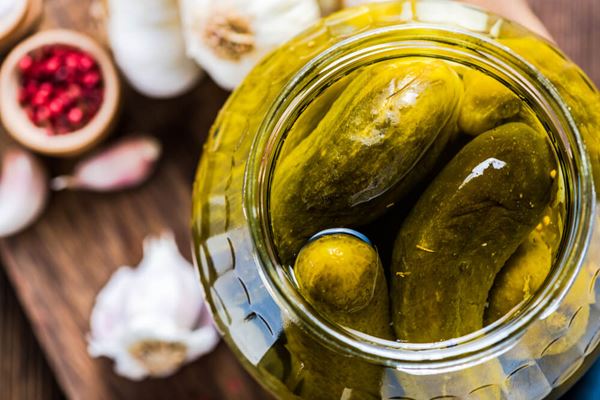It may sound strange, but local gym-goers, elite athletes and even weekend bar hoppers have been touting pickle juice as a cure-all for dehydration, muscle cramps and hangovers. Their reasoning? It prevents and treats dehydration. But does it really?
Why pickle juice?
Like pricey sports drinks, pickle juice is loaded with electrolytes like sodium and potassium. Unlike sports drinks, pickle juice is not loaded with sugar and/or artificial sweeteners. Pickle juice also contains a high amount of vinegar, which has been shown to stop nerve signals that lead to muscle cramps. So, maybe these picklers are onto something…
Does it work?
Well, there haven’t been a ton of research studies on this topic—at least, not yet. But the ones that are out there do suggest that drinking pickle juice seems to relieve muscle cramps caused by dehydration really, really quickly. There’s a whole lot more anecdotal evidence (that is, regular people who swear by it), including professional athletes (and entire pro sports teams, for that matter!).
Who should not drink pickle juice?
If you have high blood pressure or follow a low-sodium diet for some other health reason, then drinking pickle juice might not be the best choice for you. Otherwise, there’s no reason not to try a little pickle juice here and there. Just make sure it isn’t your main source of hydration—nothing beats plain old water.
Can’t stomach the thought of chugging a jar of pickle juice?
You’re not the only one! Here are some less cringe-worthy ways of adding pickle juice to your hydration routine:
- Pickle popsicles: Pour 5 oz. pickle juice into a popsicle mold and freeze (everything tastes better when it’s ultra-cold!).
- Non-alcoholic Pickled Mary: Swirl a couple of tablespoons of pickle juice into a glass of Bloody Mary mix or tomato juice.




